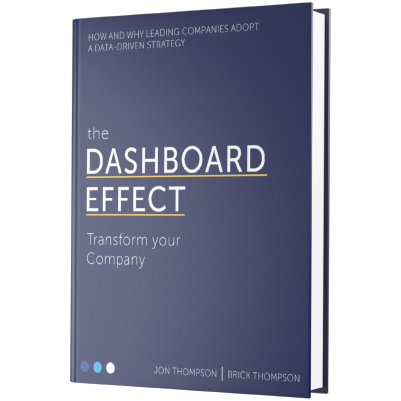While some companies choose to manage their data strategy and BI projects internally, many opt for outside consultants. Others may choose a hybrid approach of using an outside partner to help outline their data roadmap and develop the underlying architecture of their project before creating or augmenting an internal team to manage their ongoing needs.
Potential Pitfalls of Self-Service BI
While the hybrid approach can be successful (Blue Margin supports this approach through knowledge Power BI), we’ve observed mixed results with self-service BI and have been hired to help revive or rearchitect poorly executed projects.
Building your own team is not risk free.
Caleb Ochs, VP of Delivery Operations, Blue Margin
Companies working towards data-driven decision making and operations should consider the risks of the self-service model:
- It can be just as expensive, if not more, than hiring an external partner (Conlin, 2022).
- Expected business impact falls short. “Efforts can easily be deemed a success by IT measurements (good infrastructure, performance, coding, change management, etc.) but a failure to the business users” (Turley, 2014).
- Poorly defined data strategy due to lack of experience. “While [any data insight] is better than ‘going with your gut’ alone, without a clearly defined data-driven strategy, you are still shooting in the dark” (Durcevic, 2019).
- You don’t have the benefit of accessing “the full bench” of an external partner’s team of experts, and small BI teams may lack the specialized skillsets needed to build and maintain quality BI systems (Data Meaning, 2021).
In The Dashboard Effect Podcast episode, How to Succeed with BI: External Partner or Internal Team?, Blue Margin CEO, Brick Thompson, and VP of Delivery Operations, Caleb Ochs, discuss the merits of engaging an outside partner over building an in-house BI team, and why you might consider the former approach for your next project.

